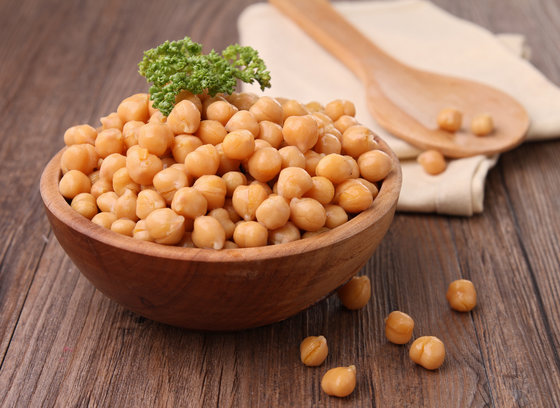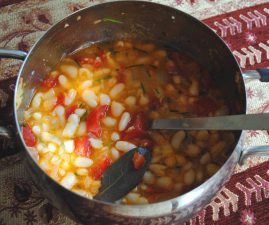 The Hebrew University in Jerusalem improves one of the world’s most important food staples.
The Hebrew University in Jerusalem improves one of the world’s most important food staples.
In a world where rainfall is no longer predictable and droughts hold sway, even affecting politics in the Middle East, we are less and less complacent about food security.
Developments like wine produced under desert conditions and pest-resistant wheat brighten the picture, but we’re still far from feeling safe about tomorrow’s plate of food. Now new strains of chickpeas that don’t rely on winter rains hold out a good promise for this drier planet.
According to a press release by Yissum, the research and development company of the Hebrew University, chickpeas are the second most important legume in the world. They are rich in protein, starch and the anti-oxidant lutein. We add, they’re also easy to cook and tasty.
“Chickpea is not only a staple diet component in large areas of the globe, but also an important health food in Western countries, and its consumption is rising steadily. Therefore, the new varieties …. are highly important for human health in developing countries, and may promote marketing in industrialized nations,” said Yaacov Michlin, CEO of Yissum.
The new chickpea varieties were developed by Prof. Shahal Abbo (The Robert H. Smith Institute of Plant Sciences and Genetics in Agriculture, Robert H. Smith Faculty of Agriculture, Food and Environment at the Hebrew University). More good news: this new chickpea strain was developed using non-GMO breeding technologies. They have larger seeds, high lutein content, moderate tolerance to fungal infection and higher yield due to flowering independently of winter rains.
“We therefore anticipate that the new varieties developed at the Hebrew University offer a unique business opportunity. Yissum is now looking for partners for further development and commercialization of this invention,” concluded Michlin.
More about the consequences of drought to the Middle East’s food supply:
Image of chickpeas via Shutterstock.




Comments are closed.